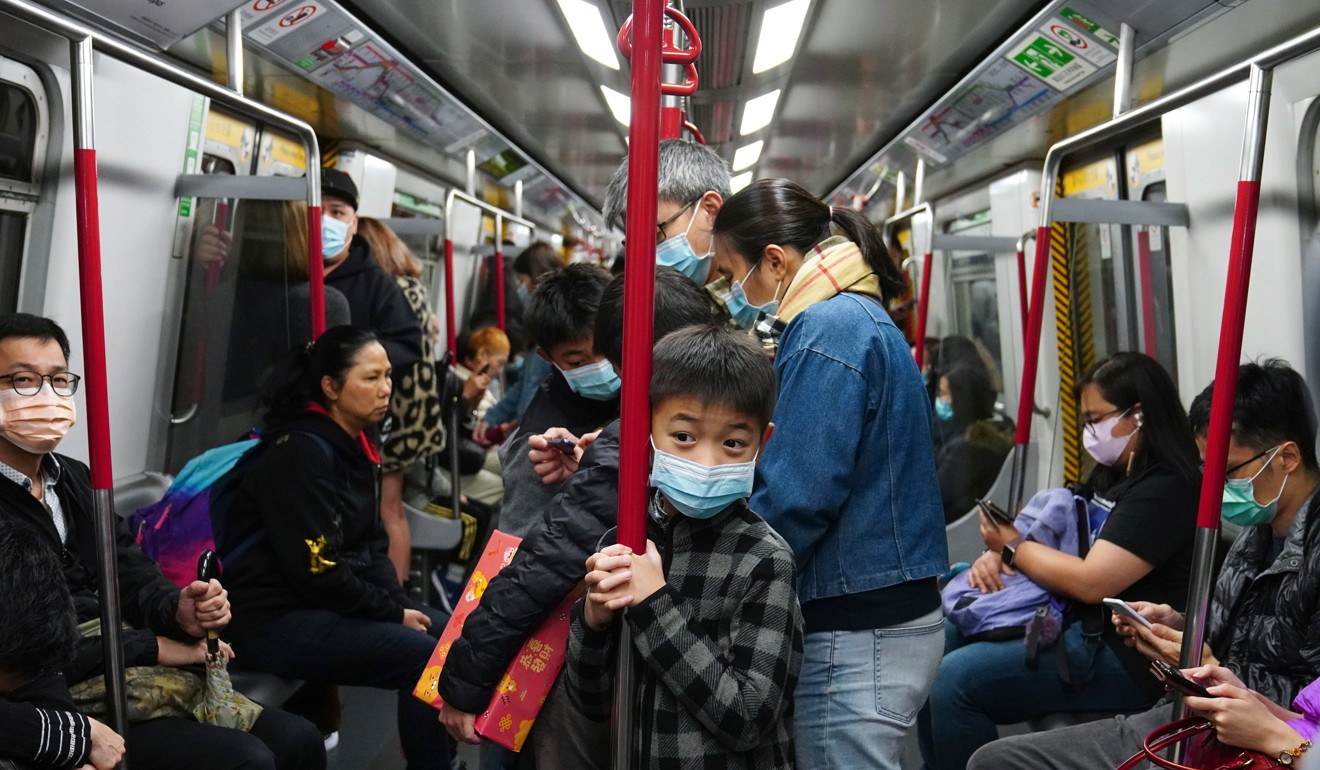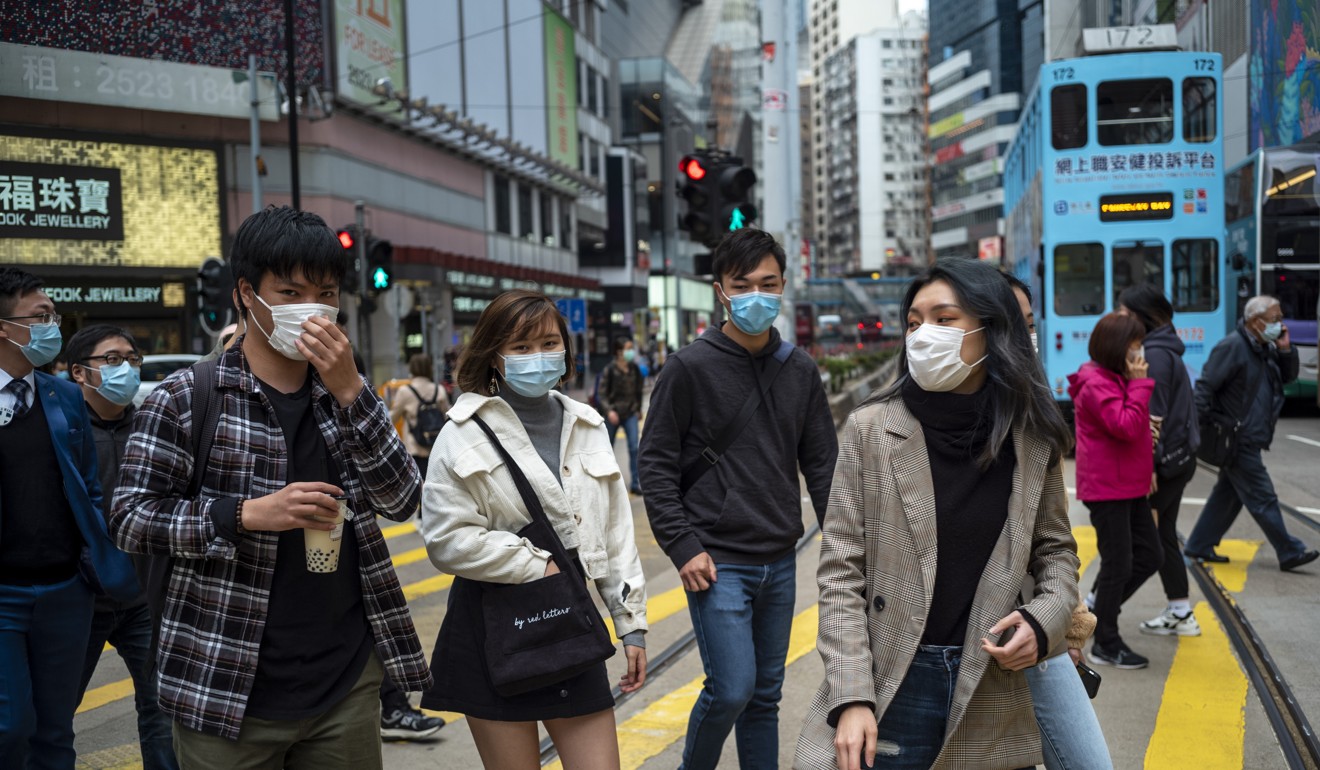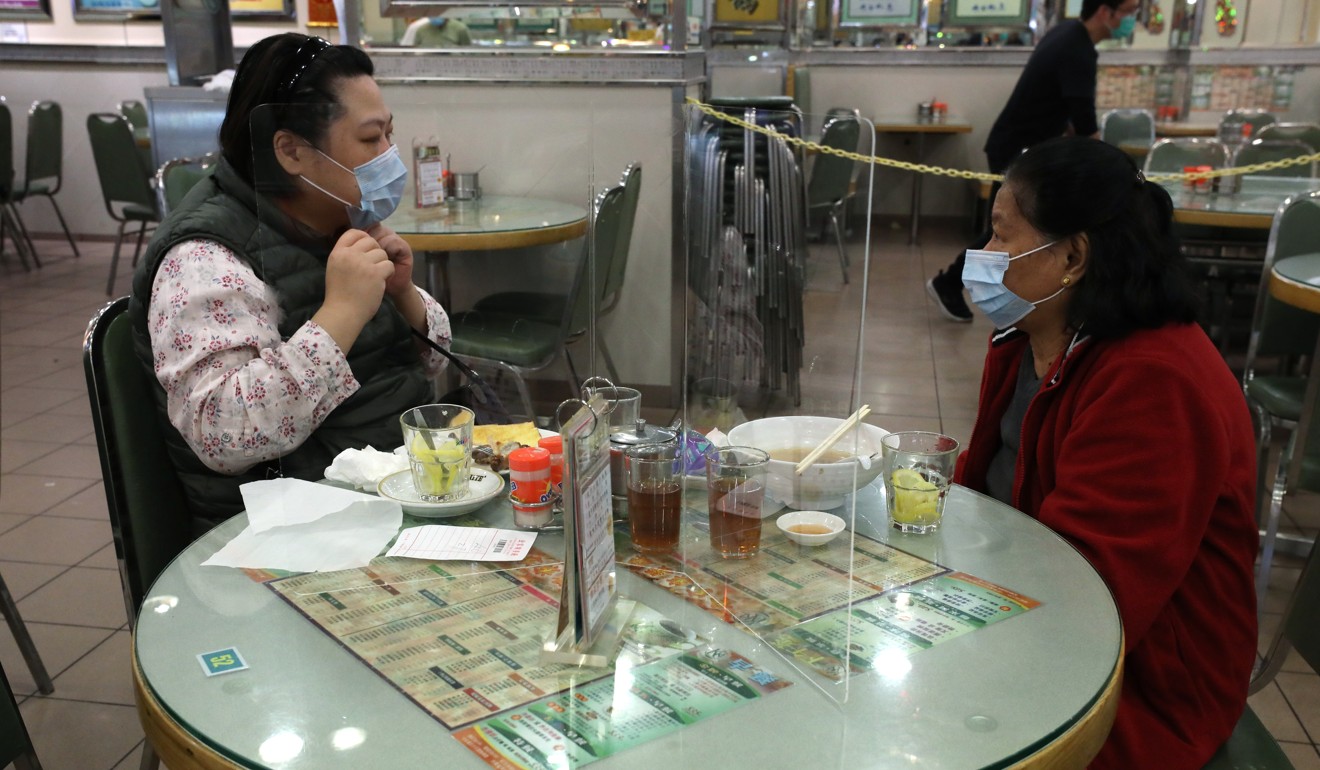
Too close for comfort: what impact will the coronavirus have on social interaction in Hong Kong?
- Hongkongers used to living and socialising at close quarters find their routines disrupted by the Covid-19 crisis
- With hotpots, mahjong and karaoke sidelined, how could Hong Kong’s social life evolve in the longer run?
Anybody living in Hong Kong can tell you straight up that it is not a place for people with claustrophobia. Not only is it one of the most densely populated cities in the world — boasting nearly 6,700 people per square kilometre – but most locals have little concept of personal space.
Those who have taken public transport such as buses and the Mass Transit Railway (MTR) would have experienced some level of anxiety as they are jam-packed like sardines in compartments and carriages during morning and evening rush hours.
But the lack of space doesn’t seem to bother most Hongkongers, since they are used to it both at home and in public. Most other people would suffer from anxiety brought on by the fear of losing control when their personal space is being invaded, but not Hongkongers.

Hong Kong people are not shy about “inviting” themselves into other people’s spaces, both physical and non-physical. For example, they don’t care about pushing themselves against you in the tight space of an elevator or engaging in (what most would consider to be unnecessarily) loud mobile phone conversations.
The concept of personal space means a different thing here, even if it sometimes seems entirely non-existent. People are often quite generous about “sharing” other people’s space without permission.
Hong Kong has a population of nearly 8 million, so there is no surprise as people are just trying to go about their lives in a limited amount of space every day.
I guess when you realise there is no other choice, you then learn to live with it or even crave that need to be in close quarters outside of your daily life.
In fact, many of Hong Kong’s social activities tend to reflect this need to maintain close physical contact with others.
Hong Kong people are used to living on top of each other — figuratively speaking — in high-rise buildings, so by default they don’t actually mind going about their business every day within a hair’s breadth or breathing down the backs of others. In fact, they thrive in close quarters.
For example, locals love to eat hotpot, which is viewed as a prerequisite of being a true Hongkonger. Other essential “skills” include singing karaoke and playing mahjong, just to name a few.
Stressed, run-down, irritable? You may be full of ‘hot air’
Sharing a hotpot meal with friends, family, and sometimes colleagues is an all-year-round dining experience even during hot and humid summer. This perennial love for a hot meal is comparable to Brits drinking scorching hot tea every day of the year, even on a (rare) hot summer’s day.
Many Westerners do not seem to understand why Hongkongers pay money to go to a restaurant and cook the food themselves. But eating hotpot is not only about the food but the opportunity to socialise, interact, and network – and of course let’s not forget the vast amount of food you enjoy when you order for a large group.
A number of restaurants in Hong Kong are now installing barriers or partitions between tables in the hopes of encouraging more people to eat out. Sadly, this well-intended safety measure may have some unintended consequences.
Many Hong Kong customs may suffer as a result of the ongoing health crisis. For example, the common use of a lazy Susan – a turntable placed in the middle of a table to help distribute food to promote sharing and increase interaction during a meal – will likely be seen as a no-no in the midst of the outbreak.

Playing mahjong is not just gambling but a social occasion for participants to catch up on family affairs or to gossip. Sometimes, it is used to build personal relationships or enhance one’s business network.
Just as people go golfing with colleagues and clients, playing mahjong is an extremely effective networking tool.
In a social setting, if a man wants to butter up his girlfriend’s parents or relatives, playing mahjong with them and losing a few games is an essential move for currying favour.
And as many of us know, in the business world it is not what you know, but who you know.
In this case, a mahjong table is the best place to get to know people and build friendships to advance your personal and business goals.

Another ideal platform for Hongkongers to build relationships is through karaoke, which is also a good place for young people to advance romance. Karaoke has the power to bring people together quickly and develop relationships.
Meanwhile, many people also use karaoke for business negotiations. Using singing and drinking in a dim and relaxing setting to connect with others seems like a good idea. However, sharing a microphone with lots of people may not be conducive to staying safe in the midst of a viral outbreak at this point in time.
Respect or ridicule: when to call someone auntie in Hong Kong?
Hongkongers may be world-class “athletes” at jostling, bumping, and elbowing their way through the day as everybody seems to be in a constant hurry and care little about personal space and privacy.
However, local people also have an innate talent for connecting with others in their distinctively Hong Kong way through hotpot meals, mahjong, and karaoke, all of which unfortunately have been temporarily suspended or warped into something that involves less sharing, more privacy and ultimately less human-to-human contact.
Consequently, the experiences are not the same any more and depending on how the coronavirus crisis escalates, it does raise some concerns over how the nature of Hong Kong social life may evolve.
Luisa Tam is a Post correspondent, who also hosts video tutorials on Cantonese language which is now part of Cathay Pacific’s in-flight entertainment programme

